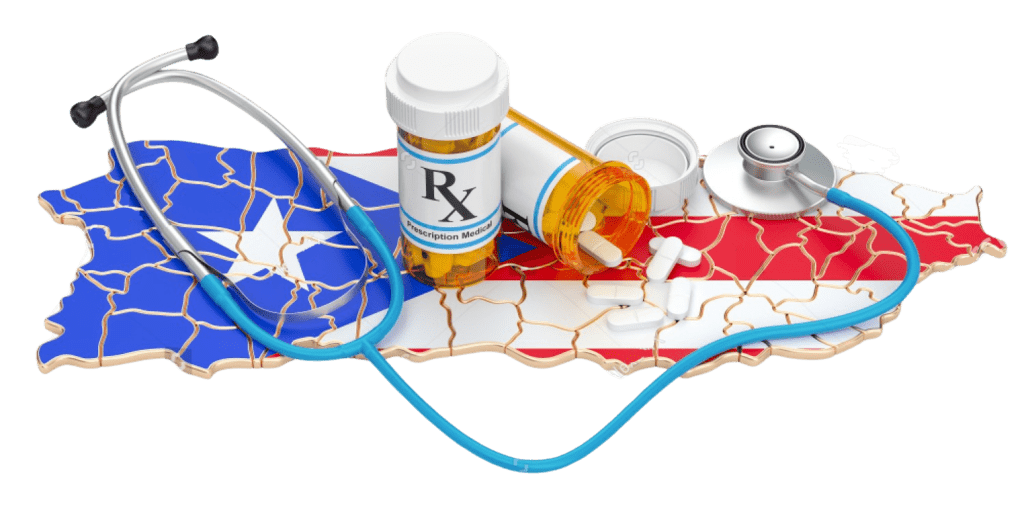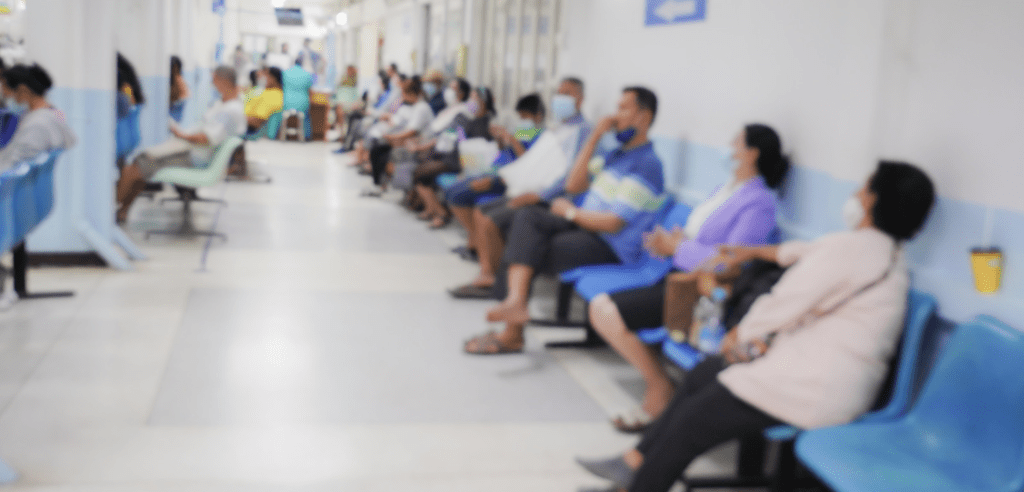Understanding Health Insurance in Puerto Rico
Coverage, Differences, and International Options

Understanding health insurance in Puerto Rico is crucial, as Puerto Rico’s health insurance system is similar to the US mainland in many ways, but there are key differences that individuals should be aware of when relocating or traveling. While conventional health insurance in Puerto Rico offers comprehensive local coverage, they often provide limited benefits outside the island. Expats, digital nomads, and frequent travelers may need to consider international health insurance options for broader coverage. For those seeking an in-depth understanding, exploring the nuances of health insurance in Puerto Rico is essential.
How is Puerto Rico’s Health Insurance Different?
Health insurance in Puerto Rico operates under a private and public healthcare system. The public system, known as Vital, is Puerto Rico’s Medicaid equivalent, covering low-income residents. The private sector includes major local providers such as Triple-S, MCS, and Humana, offering plans similar to those in the mainland U.S. but often with regional restrictions.
Most local insurance plans:
- Provide full coverage within Puerto Rico
- Offer limited coverage on the U.S. mainland (emergency care only)
- Do not typically cover elective or routine medical care outside of PR
Because of these limitations, many professionals and retirees in Puerto Rico opt for international health insurance plans to ensure full coverage while traveling.
(Related: Puerto Rico’s Healthcare System Overview)
The Impact of Low Insurance Provider Rates on Healthcare in Puerto Rico

One of the most pressing issues in Puerto Rico’s healthcare system is the low reimbursement rates from insurance providers, which contribute to lower doctor and nurse salaries. This has led to a shortage of medical professionals, particularly among Primary Care Physicians (PCPs), as many leave for the mainland U.S. where salaries are significantly higher.
Key Statistics:
- The average Primary Care Physician salary in Puerto Rico is $170,000, compared to $265,000 in the U.S.
- Specialists in Puerto Rico earn $285,000, whereas in the mainland U.S., they earn around $382,000.
- Registered Nurses in Puerto Rico earn an average of $35,000, significantly lower than the $81,000 U.S. average.
This shortage has resulted in:
- Longer wait times for appointments, especially with specialists.
- Limited availability of doctors accepting new patients.
- Higher patient-to-doctor ratios, leading to potential declines in care quality.
Given these challenges, many expats and residents seek private concierge healthcare or international health insurance for greater flexibility and access to a broader network of healthcare providers.
(Related: Medical Professional Shortages in PR)
How to Improve Your Healthcare Access and Quality in Puerto Rico
Despite the challenges, there are ways to enhance healthcare access in Puerto Rico:
- Choose a Health Plan with a Strong Provider Network – Look for insurance plans that include access to top-tier hospitals and specialists to reduce wait times and ensure high-quality care.
- Consider Private or Concierge Medical Services – Many expats and business professionals opt for concierge medicine, which provides direct access to physicians, personalized care, and faster appointment scheduling.
- Use Telemedicine Services – Many international health plans offer telehealth options, allowing patients to consult with U.S.-based doctors remotely without needing to travel.
- Supplement Local Insurance with an International Plan – For those who frequently travel or want broader coverage, international health insurance can provide access to hospitals and specialists outside of Puerto Rico.
- Seek Out Medical Tourism Options – Some residents choose to receive elective or specialized medical care in Florida, Texas, or other nearby locations, where provider availability is greater and costs can be competitive.
(Related: Telemedicine in Puerto Rico, Expat Health Insurance in Puerto Rico)
International Health Insurance Options for Expats and Frequent Travelers
If you live in Puerto Rico and frequently travel to the mainland and/or abroad and want medical coverage in multiple locations, you might consider international health insurance plans that provide global benefits. You might find it useful to book a consultation with a Puerto Rico-based health insurance agent that can counsel you about which option works best for you. Here are some of the options available:
(Related: Best International Health Plans)
1. Cigna Global
- Extensive global network with coverage in Puerto Rico and worldwide.
- Customizable plans with flexible deductibles and add-ons.
- 24/7 multilingual customer support and digital claim submission.
(Related: Cigna Global Health Insurance)
2. Allianz Care
- Strong reputation for international health coverage, including Puerto Rico.
- Comprehensive plans covering inpatient, outpatient, dental, and maternity care.
- Emergency medical evacuation and repatriation services included.
(Related: Allianz Care Health Insurance)
3. IMG (International Medical Group)
- Affordable international health insurance options with global reach.
- Specializes in long-term expat and traveler health plans.
- Offers telemedicine services and easy online claim filing.
(Related: Expat Health Insurance – IMG)
4. GeoBlue
- Exclusive plans designed for U.S. citizens living or working abroad.
- Access to Blue Cross Blue Shield’s extensive U.S. and Puerto Rico network.
- Mobile app for easy provider search, claim submission, and telehealth.
(Related: GeoBlue Travel Insurance)
5. AXA Global Healthcare
- Worldwide coverage with premium options for high-net-worth expats.
- Direct billing with a vast network of hospitals and clinics.
- Multilingual support and second medical opinion services.
(Related: AXA Global Healthcare)
6. Redbridge International Health Insurance
- Specializes in Latin America and the Caribbean, including Puerto Rico.
- Competitive pricing and flexible plan options.
- 24/7 assistance with multilingual customer support.
(Related: Redbridge International Health Insurance)
Final Thoughts: Finding the Right Plan for Your Needs
Understanding PR’s health insurance system is essential for both residents and expats. While local insurance plans provide strong coverage on the island, they may lack comprehensive benefits outside of Puerto Rico. For those who travel frequently or want peace of mind with global access to healthcare, an international health insurance plan may be the best choice.
However, it’s also crucial to recognize the broader healthcare challenges in Puerto Rico. Due to low provider reimbursement rates, many doctors and nurses relocate to the mainland U.S., leading to specialist shortages and longer wait times. Those moving to Puerto Rico should carefully evaluate their healthcare access options, which may include concierge medical services or international coverage for flexibility and peace of mind.
To explore your best options, consult with a licensed insurance advisor who can match you with a plan tailored to your healthcare needs.
Looking for guidance on health insurance in Puerto Rico and other relocation concerns? Contact Puerto Rico Advantage for expert insights and personalized recommendations!





